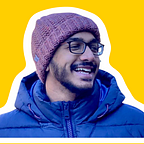Why consuming more information is not the trick to succeed today
We live in an age of unprecedented access. Information, once a carefully guarded treasure, now flows freely at our fingertips. After all this month marks the Web i.e. the WWW (World Wide Web’s) 35th birthday! (Hear from the founder himself here: https://medium.com/@timberners_lee/marking-the-webs-35th-birthday-an-open-letter-ebb410cc7d42).
A quick Google search unlocks a universe of knowledge, from historical archives to the latest scientific breakthroughs. Social media feeds us bite-sized nuggets of news, analysis, and inspiration. But are we any wiser for it?
There’s a growing sense that the gap between information consumption and action is widening.
We’re drowning in a sea of data, yet feel increasingly paralyzed when it comes to applying it. Social media once hailed as a revolutionary tool for connection, can feel more like a digital opium den, bombarding us with a constant stream of stimuli and leaving us numb and passive.
We scroll mindlessly through feeds, gorging on free knowledge and the latest trends. But to what end?
Are we simply collecting intellectual trophies, bolstering our egos with a veneer of understanding without ever truly engaging with the complexities of the world around us?
Consider the ancient philosophers: Socrates, Plato, and Aristotle. Their pursuit of knowledge was a lifelong odyssey. They didn’t have Wikipedia or Twitter. They toiled in dusty libraries, debated in bustling marketplaces, and embarked on perilous journeys in search of wisdom. Every piece of knowledge was hard-won, a precious gem to be treasured and applied with intention.
Fast forward to the pre-internet era. Books were our primary gateway to knowledge.
Discussions in cafes and libraries fueled a shared thirst for understanding. Learning was a collaborative endeavour, a journey undertaken with fellow seekers. We didn’t have information overload, but we had depth. We also didn’t compete with each other and shy away from sharing golden nuggets of wisdom.
The internet changed everything. Democratizing knowledge was a noble goal, and it undeniably opened doors. But with accessibility came a shift in how we engage with information. The firehose of data has fostered a culture of instant gratification and surface-level engagement. We skim headlines, like articles, and watch explainer videos, convincing ourselves we’re actively learning. But in reality, we’re merely scratching the surface, mistaking the accumulation of facts for genuine understanding.
The culprit? Our insatiable hunger for novelty. Social media algorithms exploit this by bombarding us with a constant barrage of content, each vying for our fleeting attention. We become addicted to the dopamine rush of a new discovery, forever chasing the next intellectual fix. But true learning requires more than a fleeting glance. It demands focus, discipline, and a willingness to grapple with complexity.
The consequences of this information overload are profound. We become overwhelmed, losing sight of what truly matters. We equate busyness with productivity and confuse the quantity of information consumed with its quality. In our relentless pursuit of knowledge, we neglect the most crucial step: taking action.
Confucius, the ancient Chinese philosopher, said:
“To know and not to do is not to know.”
— Confucius
True wisdom lies not in the hoarding of facts, but in the application of knowledge to create positive change.
So, how do we bridge this gap in the age of distraction? The answer lies in cultivating a mindful approach to information.
We must transition from passive consumers to active learners. This requires critical thinking: questioning sources, dissecting arguments, and evaluating the validity of information.
It means carving out space for deep thought and reflection, away from the constant pinging of notifications.
Here are some actionable steps:
- Curate your information diet: Be selective about the sources you consume. Follow credible experts, unsubscribe from information overload, and prioritize quality over quantity.
- Focus on depth, not breadth: Don’t skim headlines; delve deeper into topics that pique your interest. Read books, listen to long-form podcasts, and engage in focused discussions.
- Apply what you learn: Knowledge is power, but only if it’s put into action. Ask yourself: “How can I use this information to improve my life or the world around me?”
The digital age offers a wealth of knowledge, but it’s up to us to use it wisely. Let’s move beyond information consumption and embrace meaningful action.
True wisdom lies not in how much we know, but in how we use our knowledge to build a better future.
This isn’t about abandoning technology altogether. Social media can still be a valuable tool for connection and learning.
However, we must be mindful of its pitfalls and cultivate a more intentional approach to information consumption. Remember, knowledge is a means to an end, not the end itself.
